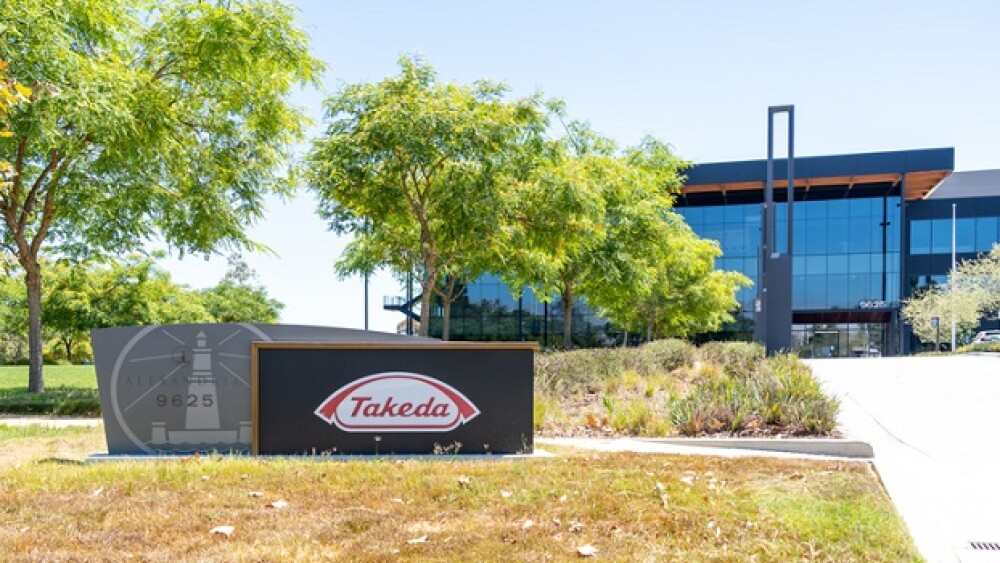The companies have signed two other pacts over the last year. In the latest deal, Takeda gains access to F-star’s platform to produce tetravalent antibodies for undisclosed oncology targets.
Pictured: Takeda office in California/iStock, JHVEPhoto
Takeda has entered into a strategic discovery collaboration and licensing agreement with British biotech F-star Therapeutics to develop next-generation and multi-specific antibodies for undisclosed cancer indications, the companies announced Wednesday.
The partners did not reveal how much Takeda paid upfront for the pact but said that F-star will receive research funding from the Japanese multinational for the duration of the collaboration. F-star will also be entitled to potential future development and commercial milestones of up to $1 billion, depending on whether the partnership’s programs reach their milestones.
F-star is also eligible for royalties on any potential annual net sales for commercial products that emerge from the agreement.
In exchange, Takeda will gain access to F-star’s proprietary platform, which produces novel tetravalent and bispecific antibodies with “drive strong dual immune activation capabilities,” according to the biotech’s website.
Using what it calls the 2 + 2 approach, F-star creates two new binding regions on the antibody’s Fc domain, which it has dubbed an Fcab.
The company achieves this “not by bolting on any additional domains or adding any additional linkers, but rather by changing about 15 surface-exposed amino acids,” Neil Brewis, F-star’s chief scientific officer, said in the company’s explainer video for its platform.
The result is an antibody with four binding sites—called tetravalency—which in turn drives the potency of F-star’s molecules. The company’s antibodies differentiate themselves from other immuno-oncology therapies through what Brewis calls the three C’s: cross-linking, clustering and conditionality.
“Cross-linking means bringing an immune cell together with a tumor cell. Clustering means activating the immune cell receptors by bringing them together. And finally, conditionality means we only activate where our bi-specific see both targets, and that’s in the tumor microenvironment,” Brewis said.
Under Wednesday’s agreement, F-star and Takeda will jointly leverage this novel antibody approach to tackle undisclosed immuno-oncology indications. Takeda will have exclusive worldwide and royalty-bearing license to research, develop and commercialize antibodies that carry Fcabs arising from the partnership. F-star will retain rights to antibodies with other Fcabs.
F-star and Takeda have signed two other immuno-oncology pacts over the last year. The first, inked in July 2022, covers one bi-specific antibody and is worth $1 million upfront, putting all research, development and commercialization responsibilities on Takeda. The second deal came in March 2023 and carried similar terms as the first contract but financial details were not disclosed.
Tristan Manalac is an independent science writer based in metro Manila, Philippines. He can be reached at tristan@tristanmanalac.com or tristan.manalac@biospace.com.






